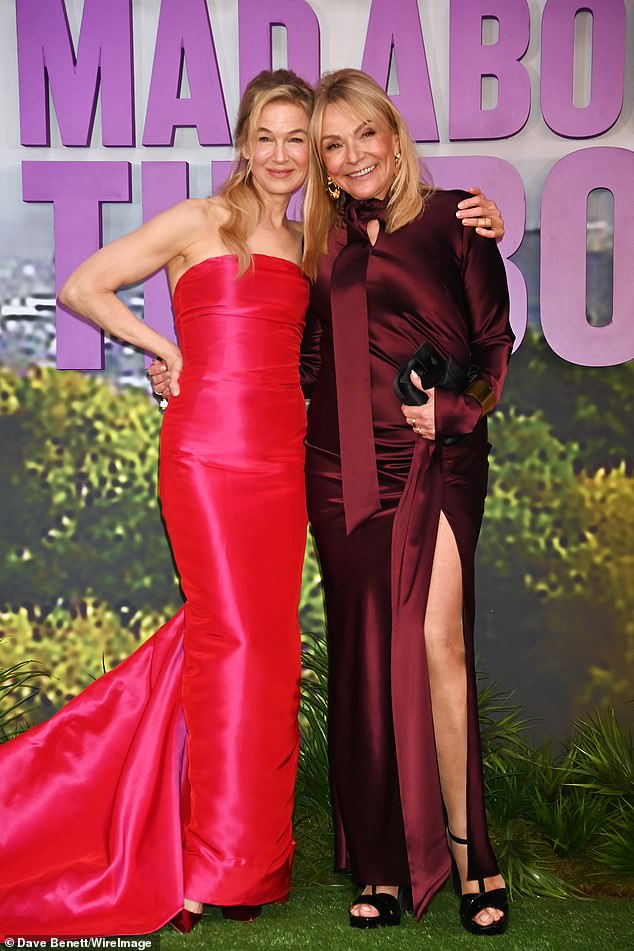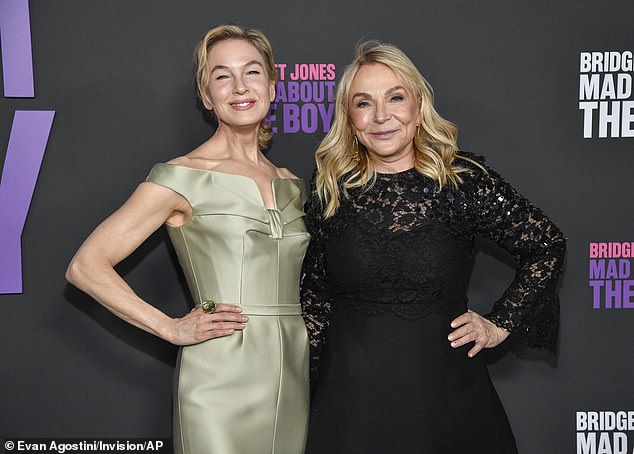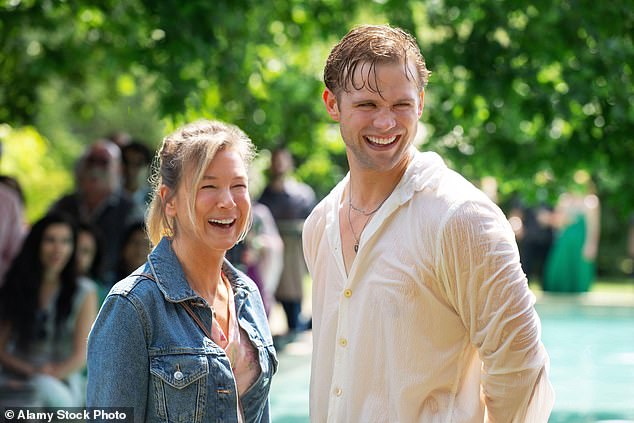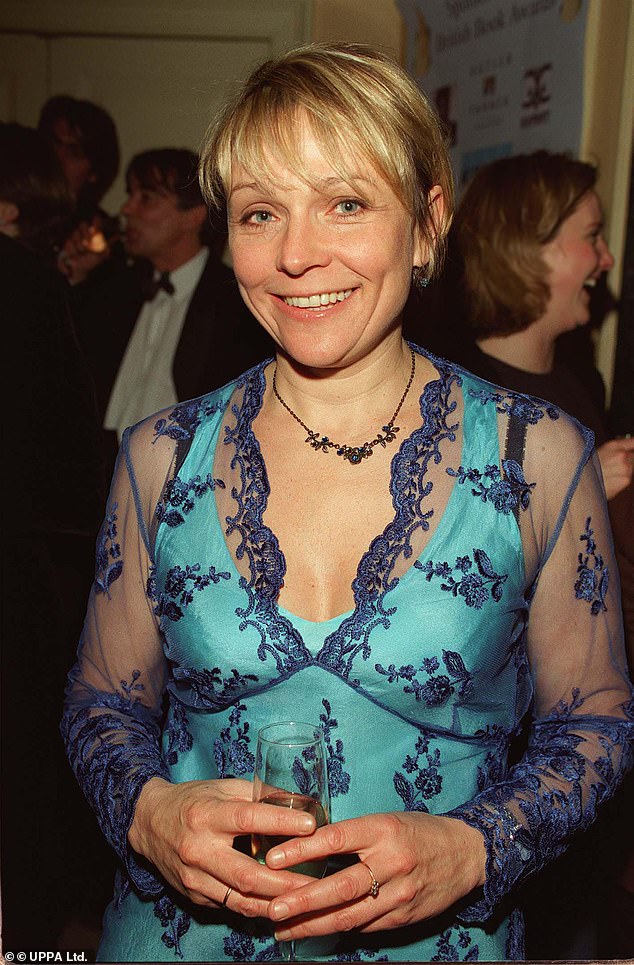Bridget Jones author Helen Fielding has spoken out about being persistently groped while working at the BBC as a young woman, The Mail on Sunday can reveal.
The 67-year-old said it was common practice for men to touch women’s breasts during conversations at the corporation in the 1980s.
Exposing the shocking behaviour, she said: ‘I worked at the BBC when I was in my 20s, and you just got used to the fact that people would actually put their hand on your boob while they were talking to you about work.’
She told the annual Soho Summit at trendy Soho Farmhouse in Oxfordshire that women at the BBC were resigned to the everyday occurrence.
‘It just seemed to be what you put up with,’ says Ms Fielding, who rose to fame in the Noughties after her widely successful Bridget Jones books were turned into Hollywood films, starring Renee Zellweger as Bridget.
‘I first wrote Bridget pre #MeToo, and when I look at that film now, I can’t believe that that stuff was going on.’
In scenes close to her own experiences, Ms Fielding’s heroine is perennially fielding unwanted sexual advances from men, including her fictional boss Daniel Cleaver, played by Hugh Grant, who surreptitiously gropes Bridget in the office.
The single, cigarette-puffing Bridget also fends off her lascivious boss Mr Fitzherbert – nicknamed ‘T**spervert’ – who blatantly stares at her breasts.

Bridget Jones author Helen Fielding has spoken out about being persistently groped while working at the BBC as a young woman, The Mail on Sunday can reveal. Pictured: Renee Zellweger and Helen Fielding attend the World Premiere of Bridget Jones: Mad About The Boy

The 67-year-old said it was common practice for men to touch women’s breasts during conversations at the corporation in the 1980s. Exposing the shocking behaviour, she said: ‘I worked at the BBC when I was in my 20s, and you just got used to the fact that people would actually put their hand on your boob while they were talking to you about work’

Exposing the shocking behaviour, she said: ‘I worked at the BBC when I was in my 20s, and you just got used to the fact that people would actually put their hand on your boob while they were talking to you about work’
Ms Fielding, who was interviewed by author Dolly Alderton at the annual festival, where other attendees included Hollywood actresses Rebel Wilson and Gillian Anderson, also said that sexism was still apparent in the film industry.
‘I honestly think it’s still there in the movie business, it’s just under the parapet,’ she added.
‘I think there has to be a constant awareness of not being unequal in the way women are treated.
‘You still have to fight much harder as a woman, even a successful woman, and you get treated in ways that men would not be treated.
‘And there’s no denying that it is still going on and it needs to change.’
Ms Fielding’s first experience of the BBC after leaving Oxford University was working behind the scenes of Jim’ll Fix It, the children’s TV show hosted by Jimmy Savile, whose unmasking as a serial paedophile caused a huge scandal at the corporation, which was accused of enabling his behaviour.
She has previously said she had suspicions about the late presenter: ‘Well, we always said, ‘Don’t leave Jimmy alone with the children’.

‘It just seemed to be what you put up with,’ says Ms Fielding, who rose to fame in the Noughties after her widely successful Bridget Jones books were turned into Hollywood films, starring Renee Zellweger as Bridget. Pictured: Renee Zellweger and Leo Woodall in Bridget Jones: Mad About the Boy

Ms Fielding’s first experience of the BBC after leaving Oxford University was working behind the scenes of Jim’ll Fix It, the children’s TV show hosted by Jimmy Savile, whose unmasking as a serial paedophile caused a huge scandal at the corporation, which was accused of enabling his behaviour. Pictured: Helen Fielding 1997
‘But we were sort of 23, and you know…. I am sure the producers must have known. We didn’t think he would do anything. But he was so creepy. We always stayed with the kids.’
The author became a regional researcher for the BBC in 1979, as part of the news magazine Nationwide.
In the 1980s, she produced and wrote documentaries in Africa for the first two Comic Relief broadcasts.
After working as a columnist and journalist for several national newspapers, Ms Fielding began writing an unattributed column about her single life for The Independent entitled Bridget Jones Diaries in 1999.
Her columns struck a chord with many single women and led to four novels and film adaptations.
A BBC spokesman said: ‘We’re sorry to hear of these experiences. Attitudes and behaviours have changed significantly in the last 40 years and the BBC – like the rest of society – is very different place now from what it was then.’












